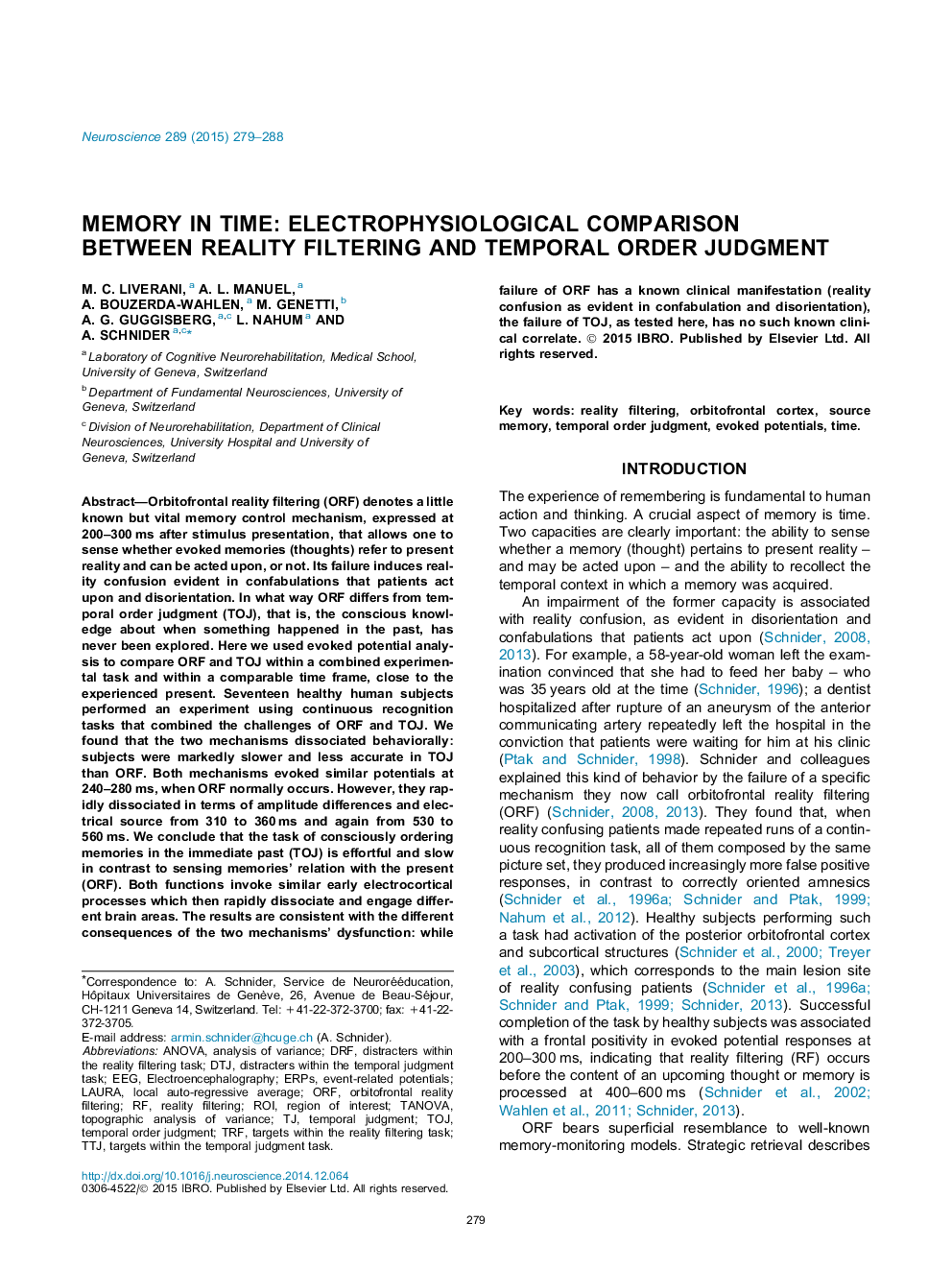| کد مقاله | کد نشریه | سال انتشار | مقاله انگلیسی | نسخه تمام متن |
|---|---|---|---|---|
| 4337532 | 1614787 | 2015 | 10 صفحه PDF | دانلود رایگان |
• Orbitofrontal reality filtering (ORF) allows to sense if memories pertain to reality.
• Temporal order judgment (TOJ) allows to place memories in the correct temporal frame.
• We compared ORF and TOJ in the same paradigm and within a comparable time frame.
• The two processes dissociate at the behavioral and electrophysiological levels.
• ORF and TOJ are two distinct time processing mechanisms in memory.
Orbitofrontal reality filtering (ORF) denotes a little known but vital memory control mechanism, expressed at 200–300 ms after stimulus presentation, that allows one to sense whether evoked memories (thoughts) refer to present reality and can be acted upon, or not. Its failure induces reality confusion evident in confabulations that patients act upon and disorientation. In what way ORF differs from temporal order judgment (TOJ), that is, the conscious knowledge about when something happened in the past, has never been explored. Here we used evoked potential analysis to compare ORF and TOJ within a combined experimental task and within a comparable time frame, close to the experienced present. Seventeen healthy human subjects performed an experiment using continuous recognition tasks that combined the challenges of ORF and TOJ. We found that the two mechanisms dissociated behaviorally: subjects were markedly slower and less accurate in TOJ than ORF. Both mechanisms evoked similar potentials at 240–280 ms, when ORF normally occurs. However, they rapidly dissociated in terms of amplitude differences and electrical source from 310 to 360 ms and again from 530 to 560 ms. We conclude that the task of consciously ordering memories in the immediate past (TOJ) is effortful and slow in contrast to sensing memories’ relation with the present (ORF). Both functions invoke similar early electrocortical processes which then rapidly dissociate and engage different brain areas. The results are consistent with the different consequences of the two mechanisms’ dysfunction: while failure of ORF has a known clinical manifestation (reality confusion as evident in confabulation and disorientation), the failure of TOJ, as tested here, has no such known clinical correlate.
Journal: Neuroscience - Volume 289, 19 March 2015, Pages 279–288
